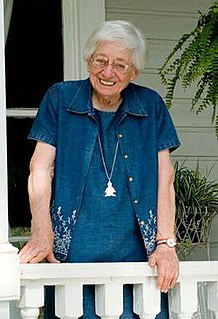A Quote by Sun Tzu
Prohibit the taking of omens, and do away with superstitious doubts. Then, until death itself comes, no calamity need be feared.
Related Quotes
Calamity, war, famine, plague, death, adversity, disease, injury do not necessarily produce repentance. We may become better in a calamity but it does not necessarily make us repent. The essence of repentance is that we cannot be repentant until we confront our own self righteousness with God's righteousness.
When the calamity we feared is already arrived, or when the expectation of it is so certain as to shut out hope, there seems to be a principle within us by which we look with misanthropic composure on the state to which we are reduced, and the heart sullenly contracts and accommodates itself to what it most abhorred.
Many people avoid talking about death, but it never bothered me. The principal of my high school was an excellent teacher. One day he was writing on the blackboard when he suddenly turned around and said 'Life is a great adventure and death is the greatest adventure of all,' then went back to the board. I have never feared death since then.
But even if ego-death is regarded as the optimum model for human existence, one of liberation from ourselves, it still remains a compromise with being, a concession to the blunder of creation itself. We should be able to do better, and we can. To have our egos killed off is second-best to killing off death and all the squalid byplay that flitters around it. So let all lands be small, and grower smaller and smaller until no lands are left where any human footstep need press itself upon the earth.
And the greatest calamity that has happened to the human mind is that he is against death. Being against death means you will miss the greatest mystery. And being against death also means that you will miss life itself - because they are deeply involved into each other; they are not two. Life is growing, death is the flowering of it. The journey and the goal are not separate; the journey ends in the goal.
Life will be wonderful when men no longer fear dying. When the last superstitions are thrown out and we meet death with the same equanimity as life. No longer will children's minds be twisted by evil gods whose fantastic origin is in those barbaric tribes who feared death and lightning, who feared life. That's it: life is the villain to to those who preach reward in death, through grace and eternal bliss, or through dark revenge.








































